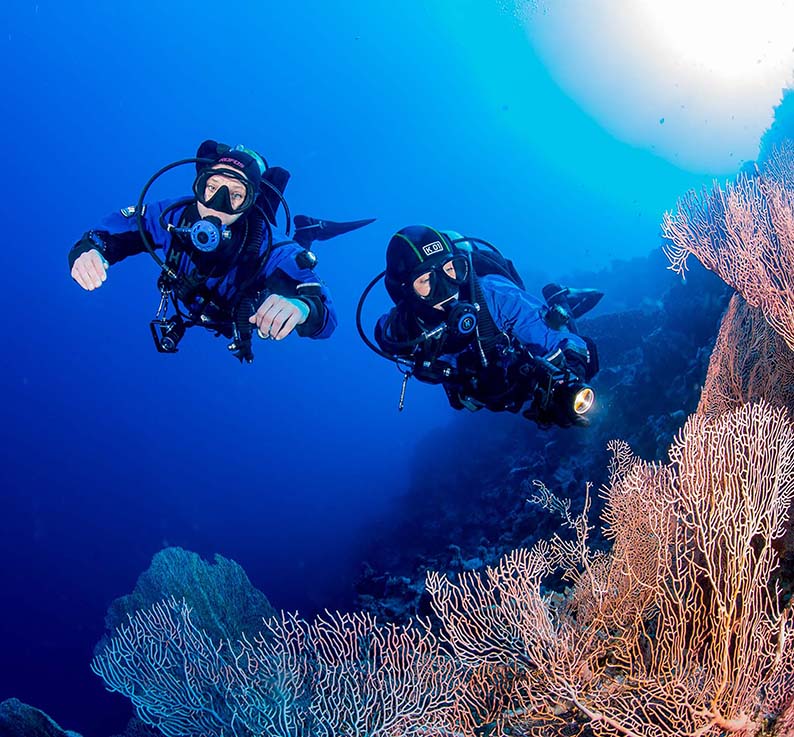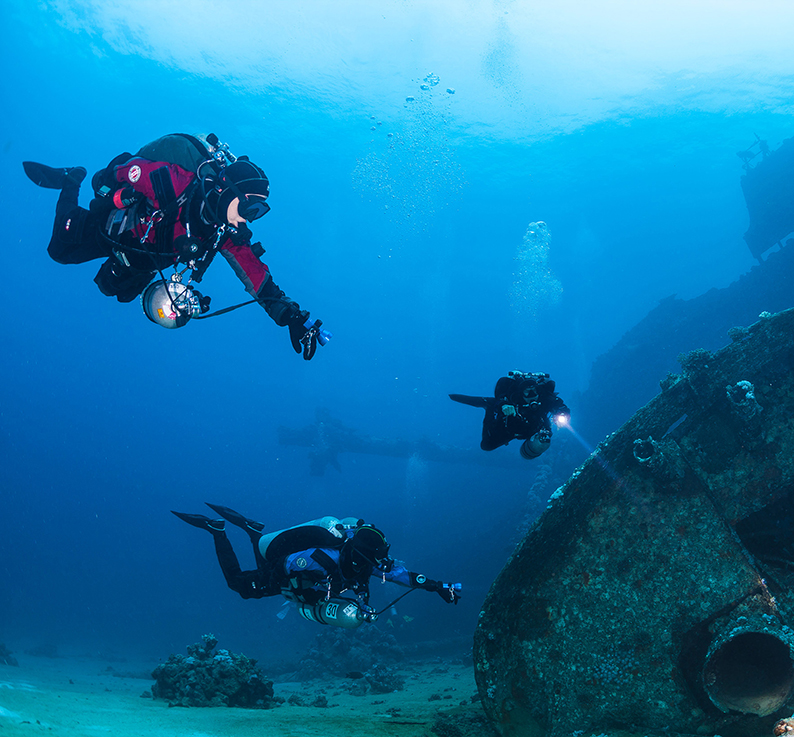RECREATIONAL CURRICULUM
ENTRY-LEVEL COURSES
Training starts with Recreational Supervised Diver or Recreational Diver 1 to give students the foundational skills they need to be comfortable and confident underwater.
Students amass diving experiences and, when ready, they proceed to the next course level to strengthen those diving skills as well as to add new ones, making their underwater experiences even more enjoyable and efficient.
If you are not sure that you will like diving as an activity, or the way GUE develops divers, try the GUE Discover Diving program to test if this activity is for you and if GUE will fulfill your expectations as your training agency.
BUT CAN I SCUBA DIVE?
Everyone can scuba dive. Well, almost everyone. To truly enjoy the underwater world, you should be able to swim, feel somewhat comfortable in and around water, be ready to take on a new experience, and commit some time to learning a new activity.
There is a minimum age limit. For GUE training, that limit is 14 years, since there is simply not enough scientific data to establish how scuba diving may affect the physiology of children younger than 14. Diving also requires the maturity to make decisions while under stress, as well as stamina, and strength for handling scuba equipment. There is no upper age limit, though; it all depends on your health, fitness and motivation.
Diving is often perceived as not being physically demanding, but diving does require a certain level of fitness in order to be performed safely. It is important to understand the level of effort expected of a diver when participating in scuba diving.
The dive equipment can be quite heavy – a basic scuba diving unit may weigh around 20–25 kg/45–50 lb, so some basic strength and fitness are necessary in order for you to be comfortable carrying and wearing it.
The evaluation of fitness to dive should include two parts. First, divers should evaluate if they are fit enough to tolerate the general effort required by this activity: carrying equipment, swimming against currents/waves, and responding to unexpected situations. Second, the fitness to dive includes evaluating specific medical conditions that could influence or contraindicate diving activity.
There are a few diseases or conditions that are partially or completely incompatible with scuba diving. The World Recreational Scuba Training Council (WRSTC) has developed a medical self-evaluation form where divers can report their medical conditions, which is a good starting point. According to the diving community and hyperbaric medical standards, divers who answer “yes” to any of the questions on the list need a medical evaluation by a diving/hyperbaric doctor. But even if divers answer “no” to the questions, it is always prudent to undergo an assessment by a diving/hyperbaric doctor, as there could be conditions unknown to the divers that could put them at risk during diving.
In some areas, a “Fit to Dive” certificate is required by local legal regulations. Consult your instructor and ask if you will be required to present such a document before you start the training.
Find out more about conditions that require a mandatory medical evaluation before diving.
ADVANCED RECREATIONAL COURSES
You can add more adventure to your dives and head deeper into the aquatic world by advancing your diving skills with the Recreational advanced courses - Recreational Diver 2 and Recreational Diver 3.






